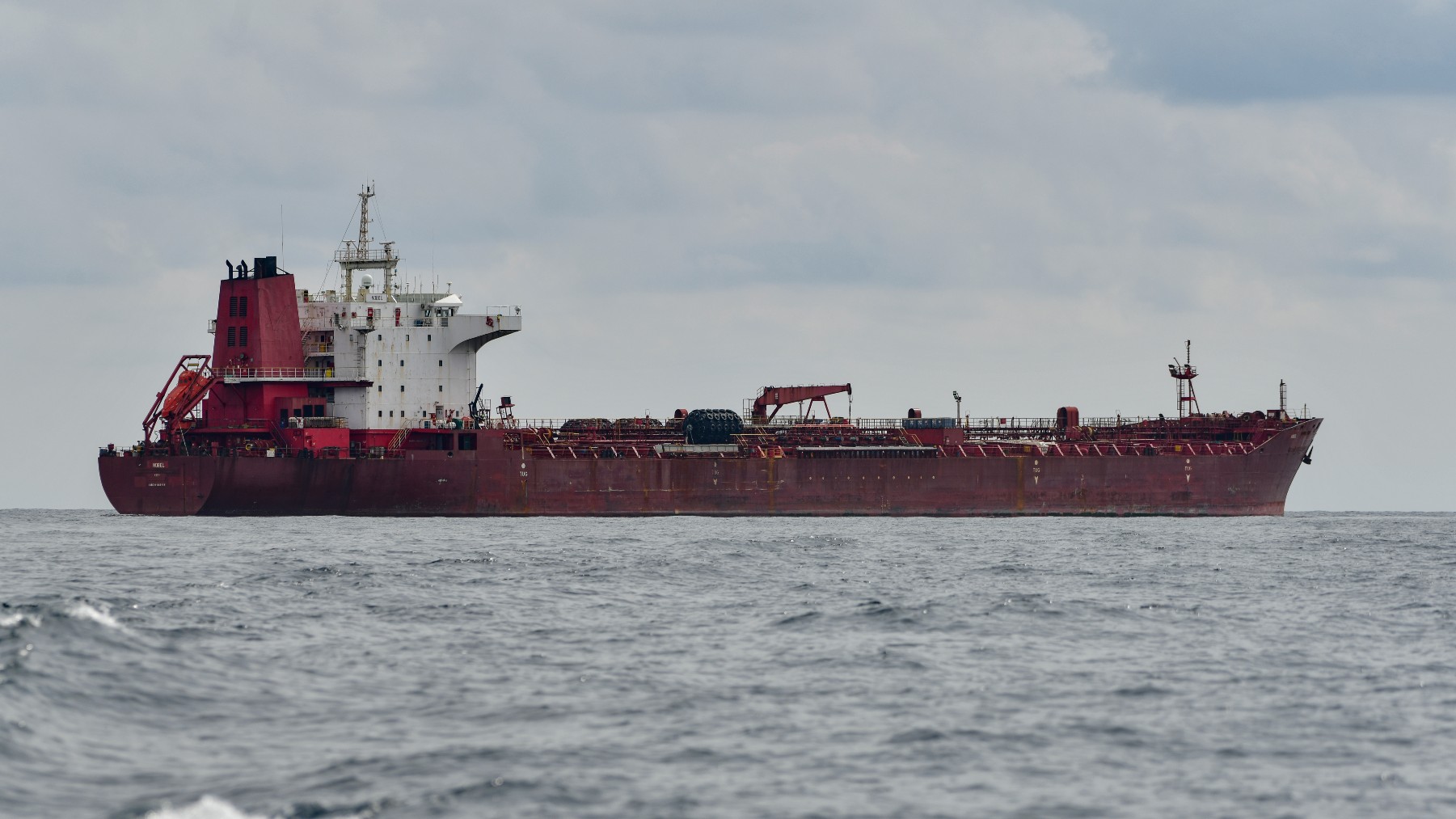US-led price cap on Russian oil 'almost completely circumvented'
'Almost none' of seaborne crude oil from Moscow stayed below $60 per barrel limit imposed by G7 and EU last year

A free daily email with the biggest news stories of the day – and the best features from TheWeek.com
You are now subscribed
Your newsletter sign-up was successful
The US-led price cap on Russian oil is being largely ignored, according to Western officials and Russian export data.
"Almost none" of the shipments of seaborne crude oil in October stayed below the maximum $60-a-barrel limit imposed by the G7, the EU and Australia last December, a senior European government official told the Financial Times. "The latest data makes the case that were going to have to toughen up… there's absolutely no appetite for letting Russia just keep doing this."
The measure bars Western shipping and insurance companies from assisting with any oil sold above the price cap. It was designed to squeeze Russian oil revenues as punishment for its invasion of Ukraine, while keeping Russian crude flowing in global markets as G7 members "tried to avoid a supply crunch and price spike that would benefit Moscow".
The Week
Escape your echo chamber. Get the facts behind the news, plus analysis from multiple perspectives.

Sign up for The Week's Free Newsletters
From our morning news briefing to a weekly Good News Newsletter, get the best of The Week delivered directly to your inbox.
From our morning news briefing to a weekly Good News Newsletter, get the best of The Week delivered directly to your inbox.
But a "rally" in global oil prices this year has meant "much of Russian oil has traded above the cap", according to Reuters. The average price was above $80 per barrel, according to official Russian statistics.
Discussions around the future of the price cap were "high on the agenda" of the US-EU summit in Washington last week, said Agathe Demarais, from the European Council on Foreign Relations, in Foreign Policy. Debate is currently "raging" about what to do with the cap, with proponents arguing that it represents "a critical tool to curb the Kremlin's ability to finance the war in Ukraine", while critics believe that Russia "easily dodges the cap, rendering it ineffective".
But the reality is "more nuanced", said Demarais. The oil price cap has "largely succeeded" in lowering Russia's revenues, but based on "precedent set by other sanctions regimes", it was "always clear" that Russia would eventually manage to evade it.
A free daily email with the biggest news stories of the day – and the best features from TheWeek.com
Harriet Marsden is a senior staff writer and podcast panellist for The Week, covering world news and writing the weekly Global Digest newsletter. Before joining the site in 2023, she was a freelance journalist for seven years, working for The Guardian, The Times and The Independent among others, and regularly appearing on radio shows. In 2021, she was awarded the “journalist-at-large” fellowship by the Local Trust charity, and spent a year travelling independently to some of England’s most deprived areas to write about community activism. She has a master’s in international journalism from City University, and has also worked in Bolivia, Colombia and Spain.
-
 Political cartoons for February 14
Political cartoons for February 14Cartoons Saturday's political cartoons include a Valentine's grift, Hillary on the hook, and more
-
 Tourangelle-style pork with prunes recipe
Tourangelle-style pork with prunes recipeThe Week Recommends This traditional, rustic dish is a French classic
-
 The Epstein files: glimpses of a deeply disturbing world
The Epstein files: glimpses of a deeply disturbing worldIn the Spotlight Trove of released documents paint a picture of depravity and privilege in which men hold the cards, and women are powerless or peripheral
-
 Key Bangladesh election returns old guard to power
Key Bangladesh election returns old guard to powerSpeed Read The Bangladesh Nationalist Party claimed a decisive victory
-
 US, Russia restart military dialogue as treaty ends
US, Russia restart military dialogue as treaty endsSpeed Read New START was the last remaining nuclear arms treaty between the countries
-
 What happens now that the US-Russia nuclear treaty is expiring?
What happens now that the US-Russia nuclear treaty is expiring?TODAY’S BIG QUESTION Weapons experts worry that the end of the New START treaty marks the beginning of a 21st-century atomic arms race
-
 Epstein files topple law CEO, roil UK government
Epstein files topple law CEO, roil UK governmentSpeed Read Peter Mandelson, Britain’s former ambassador to the US, is caught up in the scandal
-
 Iran and US prepare to meet after skirmishes
Iran and US prepare to meet after skirmishesSpeed Read The incident comes amid heightened tensions in the Middle East
-
 EU and India clinch trade pact amid US tariff war
EU and India clinch trade pact amid US tariff warSpeed Read The agreement will slash tariffs on most goods over the next decade
-
 Israel retrieves final hostage’s body from Gaza
Israel retrieves final hostage’s body from GazaSpeed Read The 24-year-old police officer was killed during the initial Hamas attack
-
 China’s Xi targets top general in growing purge
China’s Xi targets top general in growing purgeSpeed Read Zhang Youxia is being investigated over ‘grave violations’ of the law